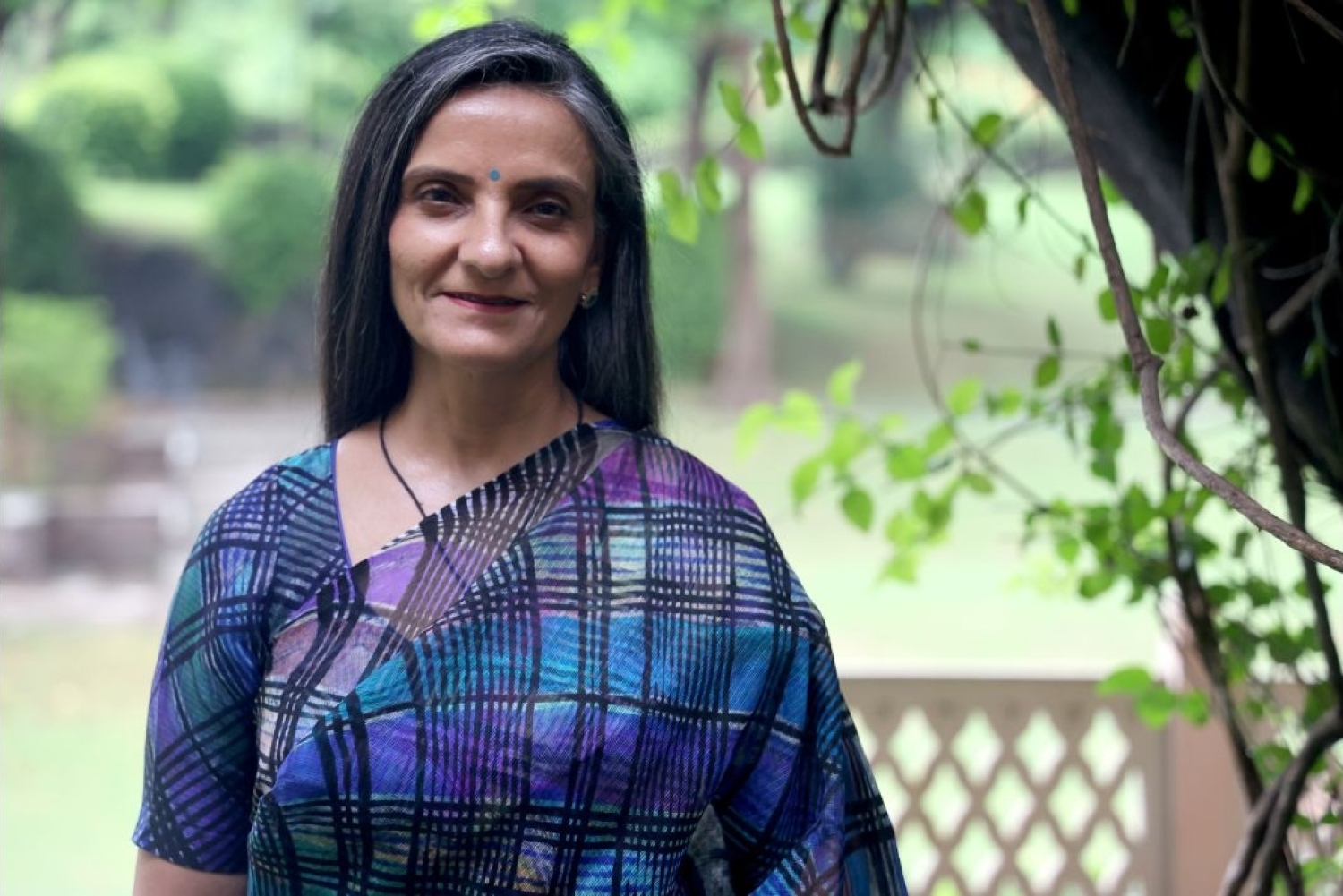


A lot goes into the making of a book. While its true that the onus of the success of a book majorly lies on the author, the people behind the writer’s words—agents, publishers, and editors—also have the power to make or break a book. Their creativity and dedication help a book reach its full potential. One such visionary behind many many award-winning books from India is Mita Kapur. She founded one of the very first literary agencies in India, Siyahi, which has been instru- mental in bringing these books to life. Along with con- ducting literary festivals to managing the country’s most prestigious literary award, the JCB Prize, Mita leads the mission of bringing writers to the forefront.
Now, as she prepares to host Siyahi’s first writing retreat in Jaipur with two chapters, we spoke to her about her vision and efforts behind promoting literature in India.
What is your relationship with books, and what attracts you so much to them, considering your involvement with the JCB Prize, your own literary agency, and now the writers’ retreat?
I just grew up with books. I come from a family where reading was constant. Growing up, we were three sisters and life was simpler then. We could go to a park or a garden for a picnic, there wasn’t much else to do in a small town like Jaipur. So, we read. I remember finishing most of Enid Blyton’s books by the time I was nine or ten. At 11 or 12, I picked up The Scarlet Letter, and my elder sister said I was too young for it. Then, post-graduation in journalism happened, and majoring in literature was a very organic step so books have been there with me all my life.


What made you start the writers’ retreat?
These are the learnings I’ve gained over nearly two decades of working with writers—from the conception of their ideas to halfway through, or when they come to me with a full manuscript. A manuscript is never ready in the first draft; you constantly need an objective eye. You get too close to your words, and then you make the mistake of showing it to family and friends who will, of course, praise you to the moon.
I’ve been running festivals since 2006, hosting book events, reading and assessing manuscripts, representing authors, and trying to market them to publishers. I’ve been running the JCB prize for the last five years, and through all of this, I realized that while many retreats and residencies exist, I wanted to create something truly immersive and intensive. If anyone thinks it’s going to be a joyride, they’ll be in for a real shock. Every hour is packed. It’s not just writing, workshops, or exercises; we give them free time to reflect and roam the streets, but they’ll have to come back with a story. We’re exposing them to all sorts of sensory stimuli, then asking them to create.
I created these writing retreats to give back to the community of writers and creators in our country. The goal is to provide direction so they don’t feel lost, to give them the right mentors, and to help elevate their writing style. We want them to find their voice, create characters that feel alive, and write in a way that’s evocative, com- pelling, and inspiring. It’s about encouraging them to constantly challenge themselves and strive for excellence. India needs to produce finer writing. We have excellent books coming out, but excellence never ends. You have to keep pushing yourself to do better. These retreats aren’t about creating competition. It’s about getting people to explore their potential in ways they haven’t before.
Some say writing is a form of devotion that re- quires consistent practice—reading and writing regularly. Given that a retreat is of short duration, how much change do you think it can bring to a writer’s work? What role do you think retreats play in the literary community?
The writer’s retreat isn’t promising a finished manuscript. But there’s a very realistic takeaway for every writer. A well-thought-out and balanced retreat can serve as a catalyst for writers. It’s like adding soda bicarb to idli batter; it helps ideas and emotions rise and evolve. A retreat helps unlock potential you didn’t know you had, and it gives you the push in the right direction.
Sometimes, we all need that kind of push. Though our retreats are short, we don’t just focus on constant mentoring. We allow the participants to be free, whether they want to write, relax, or read. We’re creating spaces for them to absorb inspiration in different ways.
Raffles, the venue for our first retreat, have a signa- ture writers’ bar. I’ve worked with them in Jaipur, and the tradition is now being carried over to India. I’ll be leaving books scattered around the property, even bringing some from my own collection, to create a very conducive envi- ronment for creativity. The goal is for people to leave not just with improved pitches or proposals, but re-energized, with memories they can incorporate into their writing.

What do you think needs to change or develop in the literary landscape of India?
There’s a lot to be done. The good thing is that there’s a lot more experimentation in publishing and more avenues for authors, thanks to technology. But the real challenge is marketing and distribution. India is a vast country, and it’s hard to have distribution that reaches every small town and bookstore. Until that happens, authors won’t get the recognition they deserve. It’s not just about economics; it’s about the respect and recognition they should receive in the socio-cultural context.
I want Indian authors to be revered like international authors—when Yuval Noah Harari walks in a room, he is worshipped or like a Noam Chomsky, I want them to get that kind of recognition. Our writers should be just as celebrated, change-makers and thought-leaders. That’s the dream.
Words Paridhi Badgotri
Date 26.04.2025
